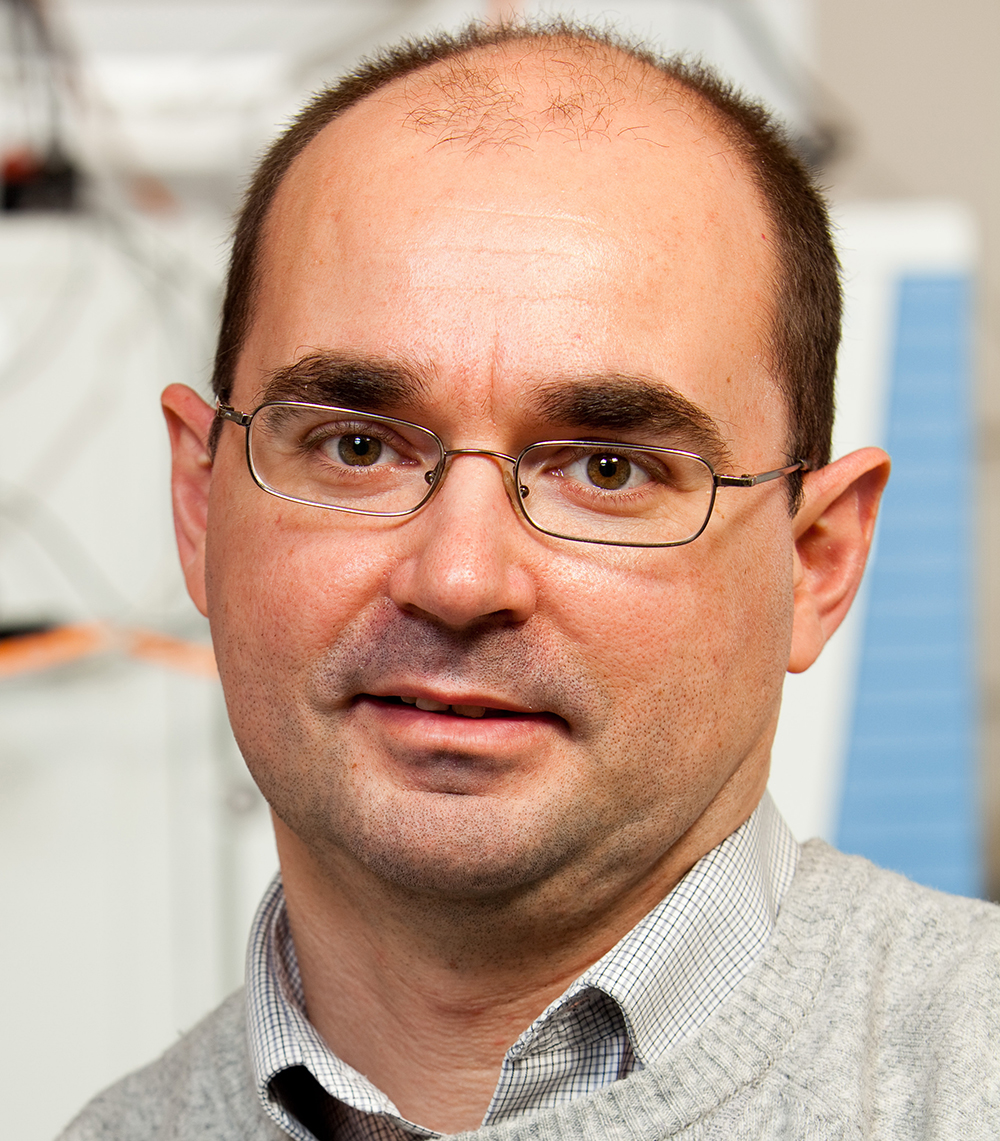Forscherdatenbank

Prof. Dr. Boris Macek
Interfakultäres Institut für Zellbiologie, Proteome Center Tübingen
Auf der Morgenstelle 15
72076 Tübingen
Programm
Cancer Genome Sequencing and Proteome Analysis Platform (CGP)
Übersicht
Available genome annotations usually rely on computational predictions of protein coding genes. Peptides from proteome lysates identified by mass spectrometry can be mapped directly onto the raw genome sequence, thus enabling the verification, re-annotation as well as the identification of unpredicted genes in a straightforward manner. Our laboratory is developing proteogenomics strategies based on high accuracy mass spectrometry and has so far used them to refine the genome annotation of several eukaryotic and prokaryotic model organisms (Borchert et al., Genome Res, 2010; Krug et al., Mol BioSystems, 2011; Krug et al., Proteomics, 2014).
We are currently applying these proteomics approaches to study influence of non-symonymous single nucleotide variants (nsSNVs) on protein modifications and signal transduction in individual proteomes. We use resistance to BRAF inhibitors (e.g. vemurafenib) in melanoma cell lines and xenografts as a model, but the approach can be quickly adapted to almost any other type of cancer. The concept of “personalized proteomics” will be a major development in the field of cancer proteomics over the next five to ten years. It will closely follow the development of personalized gene- and protein databases driven by rapid advances in next generation sequencing (personalized genomics).
DKTK Junior Group Leader for Cancer Systems Biology
Single-cell approaches have not only revealed a wide variety of cell states, characterized by cells exhibiting striking differences in their transcriptional profile, but have also illuminated the mechanisms underlying state transitions in health and disease. Cellular plasticity and adaptive state changes have recently emerged as a basis for therapeutic resistance in cancer, and a better understanding of how cell state transitions are regulated is critical to develop therapeutic approaches that can overcome therapy resistance.
Our research focuses on understanding the mechanisms driving non-genetic cellular heterogeneity and therapy resistance in malignancy. Using novel single-cell sequencing approaches, we seek to develop new experimental and computational strategies to define altered cell states in both, cancer and immune cells. Our aim is to leverage a data driven strategy combined with single cell genomics and systems biology to address the challenges posed by heterogeneity in cancer, and to develop new strategies to overcome it, with the aim of translating laboratory-based findings into the clinic.